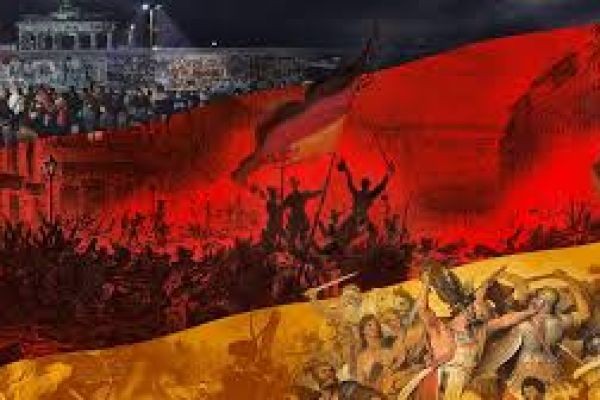Germany stands as one of Europe’s most influential countries, with a past that stretches across thousands of years. Its story includes ancient tribes, medieval empires, wars, cultural renaissances, and modern rebirth. By understanding the History of Germany, we gain insight into how this nation shaped world events and became a symbol of both resilience and progress.
Early Settlements and Germanic Tribes
The earliest chapters of Germany’s history trace back to prehistoric times when Celtic and Germanic tribes settled along rivers like the Rhine and Danube. Roman records mention tribes such as the Goths, Franks, and Saxons. These groups lived in small communities, farming, hunting, and trading.
The Romans attempted to conquer the region, but the Battle of Teutoburg Forest in 9 CE became a turning point. Germanic warriors, led by Arminius, ambushed and defeated three Roman legions. This victory prevented full Roman control and preserved the independence of these tribes.
The Holy Roman Empire
In 800 CE, Charlemagne, king of the Franks, was crowned Emperor of the Romans by the Pope. His empire laid the foundation for what later became the Holy Roman Empire.
Throughout the Middle Ages, the Holy Roman Empire included a vast collection of kingdoms, duchies, and free cities across central Europe. Although it lacked central authority, it became a cultural and political hub. Cities like Cologne and Nuremberg thrived through trade, architecture, and education.
Reformation and Religious Conflicts
The 16th century changed Germany forever. Martin Luther, a monk from Wittenberg, challenged the Catholic Church by publishing his 95 Theses in 1517. This sparked the Protestant Reformation, dividing Europe between Catholics and Protestants.
Religious tensions led to the Thirty Years’ War (1618–1648), one of the most devastating conflicts in European history. Villages were destroyed, populations declined, and Germany’s political landscape fractured even further.
The Rise of Prussia and German Unification
By the 18th century, the Kingdom of Prussia rose as a powerful state under rulers like Frederick the Great. Its disciplined military and efficient governance gave it influence over other German territories.
The dream of uniting the many fragmented German states grew stronger in the 19th century. Under the leadership of Otto von Bismarck, Prussia spearheaded wars against Denmark, Austria, and France. In 1871, victory over France led to the proclamation of the German Empire in the Hall of Mirrors at Versailles, with King Wilhelm I as emperor.
Germany in the World Wars
World War I (1914–1918)
Germany’s ambitions for power and alliances pulled it into World War I. Despite early successes, the nation faced massive losses. The Treaty of Versailles in 1919 placed heavy reparations and territorial losses on Germany, leaving the people humiliated and economically broken.
World War II (1939–1945)
The hardships of the 1920s created fertile ground for Adolf Hitler and the Nazi Party. Promising to restore pride, they took power in 1933. Soon, Germany began rearming, expanding, and launching aggressive invasions.
World War II devastated Europe and beyond. Millions perished, including victims of the Holocaust. By 1945, Germany lay in ruins, divided among the Allied powers.
Division and Reunification
Post-War Division
After World War II, Germany split into two states: West Germany (Federal Republic of Germany) aligned with the West, and East Germany (German Democratic Republic) under Soviet influence. The Cold War highlighted this division, symbolized by the Berlin Wall, built in 1961.
Fall of the Berlin Wall
In 1989, peaceful protests and political changes led to the fall of the Berlin Wall. Crowds celebrated as East and West Germans reunited. By 1990, Germany became one nation again, marking a historic moment of unity and hope.
Modern Germany
Today, Germany stands as Europe’s largest economy and a leader in technology, sustainability, and diplomacy. Berlin, its capital, thrives as a hub of culture, art, and innovation. Germany also plays a key role in the European Union, shaping global policies on trade, climate, and security.
From Beethoven’s music to Einstein’s science, Germany continues to contribute to the world in remarkable ways. Its history reflects resilience—rising from destruction to leadership in peace and progress.
Cultural Influence of Germany
Beyond politics and wars, Germany’s history is rich with culture. The country produced famous composers like Bach, Beethoven, and Wagner, whose music still inspires. Its philosophers, such as Kant, Nietzsche, and Hegel, shaped global thought. German engineering, from automobiles to architecture, remains respected worldwide.
Interesting Facts About Germany’s History
- Oktoberfest in Munich dates back to 1810, celebrating a royal wedding.
- Gutenberg’s printing press, invented in Germany, revolutionized education and communication.
- The Berlin Wall stood for 28 years before its fall in 1989.
- Cologne Cathedral took over 600 years to complete.
- Germany has more than 25,000 castles, reflecting its medieval heritage.
Why the History of Germany Matters
The History of Germany matters because it mirrors the struggles and triumphs of humanity. From ancient tribes to global leadership, Germany shows the power of unity, resilience, and reinvention. Its past carries lessons of strength, tolerance, and the pursuit of peace.
Conclusion
Germany’s journey from fragmented tribes to a modern powerhouse highlights a story of transformation. Its history includes brilliance, tragedy, resilience, and renewal. By studying the History of Germany, we see how one nation can influence global culture, politics, and innovation. Germany remains not just a European leader but a nation whose past continues to shape the present and inspire the future.

